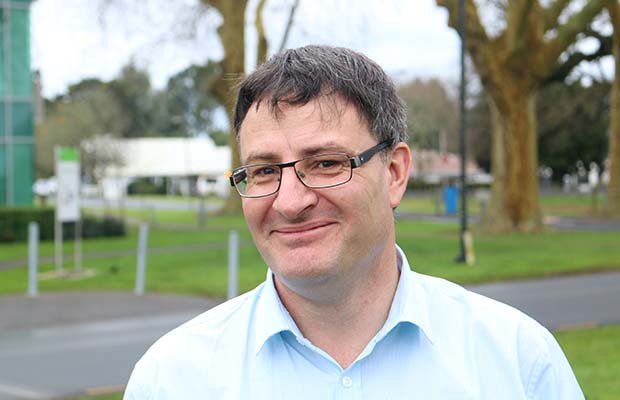With a career in agritech running from the pre-internet dark ages to these halcyon days of high-speed connectivity, AI and machine learning, Andrew Cooke admits he risks falling into the “grumpy old man” demographic after witnessing such rapid advances in tech development.
But the reality is far from that. Cooke is better categorised as a collaborative pioneer in agritech software, one who is relishing the next step in his career, which comes in part due to the recent acquisition of Hamilton based agri-software development company Rezare by UK tech company Map of Ag.
Cooke has for many years been the industry’s quiet collaborator, recognising very early on that agritech was not going to advance far with every company thinking they had the “silver bullet” solution to whatever problem they thought farmers needed solving.
Back in 2012 he was instrumental in establishing a world first by having New Zealand lay out the terms for an agricultural data code of practice, protecting how farmers’ information was going to be shared, and by who.
Cooke acknowledges the way forward was to work on being on good terms with as many parties as possible, at a time when many were liable to hold whatever IP tech they had very close to their corporate chest.
He concedes that on one level the farm data code of practice was not as successful as he may have envisaged, with very few companies signing up to be accredited to the code.
“But on another level, it was highly successful in a way we did not expect. While few companies got accredited, just about every company went and changed their terms and conditions around data use, for farmers’ benefit.
“A bunch of projects also happened internationally, and the NZ code helped shape the equivalent codes around the world.”
Greater global uniformity in software configuration, data sharing and interoperability are all testament to Cooke’s ability to get on with most people and get them on side for collaborative projects.
These efforts have also been recognised at an international level, with Cooke also recently receiving the award for outstanding contribution at the International Committee of Animal Recording (ICAR) meeting in Montreal.
The globally influential work he has overseen with Rezare includes ICAR’s animal data exchange system. The project worked across the hemispheres to establish an open-source software platform that is free to use and can be utilised by agritech developers.
It is already in use by robotic milking machine and farm software vendors, data exchanges and milk recording organisations, and supports a wide range of livestock from dairy cows right through to milking buffalo and deer.
It is largely thanks to Cooke’s efforts like this that the agritech holy grail of interoperability has become a lot closer between systems and developers.
Here at home, another backroom application few farmers will know about but enjoy the benefit of has been the development of DataLinker. The software framework was developed to help agri-companies share data effectively and eliminate farmers’ pet hate, the need to enter data twice.
The other recent release in NZ has been VelTrak, a supply chain software system developed to track NZ velvet’s movements from farm to final retail destination, guaranteeing supply chain transparency.
Cooke says the acquisition of Rezare by Map of Ag came about with the UK company recognising Rezare’s strong talent pool, one that comprises 40 developers and software programmers in Hamilton who are plugged into agriculture.
“And Map of Ag is about enabling data to be used by companies, advisors and software specialists. It is a good fit with Rezare’s capacity to power up their aspirations,” says Cooke.
He says the move makes Rezare a significant player internationally, and all the challenges being faced right now are positive ones relating to a strong growth phase that includes some high-profile international food-producing and -retailing customers.
Cooke says every country likes the idea they are agritech leaders, and his greater global reach has bought him into contact with players as far afield as Finland and Norway, both of which offer great developments.
He sees NZ “absolutely” holding its own in the competitive sphere.
One major challenge, however, remains maintaining a flow of good talent through our respected tertiary institutions, rather than relying upon immigration to address any talent shortage.










